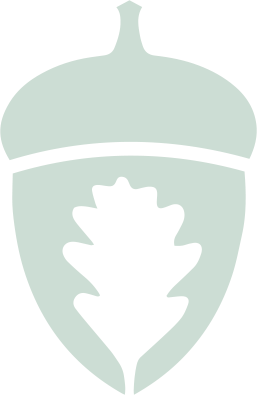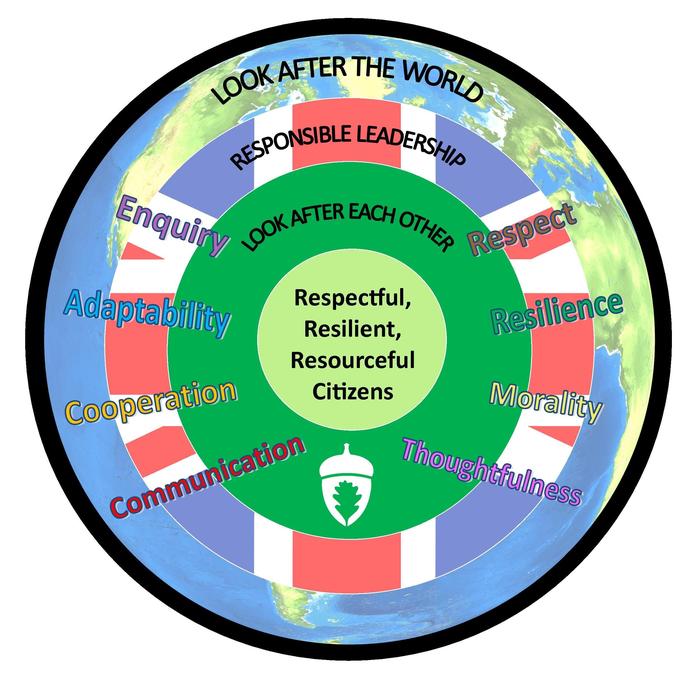
Curriculum Overview
Our Curriculum
At Oak Lodge our aim is to create a friendly, exciting and inspiring place to learn, where children feel safe and nurtured. We want our children to become brave learners, who are willing to try new things and learn from their mistakes, so that they are able to grow into independent and confident young people, well prepared for the next stage in their education.
We are committed to the inclusion of all children. All children, including those with specific learning difficulties, those with physical disabilities, the most able and children with English as an additional language are nurture through a range of strategies, interventions and support.
We want our children to have a variety of experiences and we are committed to following the requirements of the National Curriculum. Part of this is taught through a topic based curriculum.
Our curriculum has 3 global themes which help to drive what we do in school. These are: Look After the World, Be Responsible Leaders and Look After Each Other. Our theme of Looking After the World is also supported through our sustainable curriculum.
Literacy is delivered through the ELS (Essential Letters and Sounds) phonics scheme and our early reading scheme links to this ensuring a consistent approach to learning to read throughout the school. Reading is central to all that we do at Oak Lodge and ensuring that children read for pleasure and thus become confident readers is a key part of our reading philosophy. We carefully select high quality texts, which increase in complexity to develop children's reading fluency and engagement. Our core books are selected from the Power of Reading scheme, which uses creative teaching approaches to engage and motivate children in their literacy learning; in addition, the texts provide a stimulating, meaningful context for writing and ensures that children write in range of genres.
For the teaching of mathematics we use a range of resources to supplement our scheme of work. We dedicate a significant amount of time to developing key number concepts each year. This ensures students build their fluency as number sense will affect their success in other areas of mathematics. Building on their knowledge and understanding of number children are challenged to develop their reasoning and problem solving skills.
For Religious education - Schools have to teach RE but parents can withdraw their children for all or part of the lessons. Pupils can choose to withdraw themselves once they’re 18.
Personal Development
- Personal Development at Oak Lodge - Personal Development Overview
- Trips and Enrichment at Oak Lodge - Trips and Enrichment at Oak Lodge
- Life Skills and Leadership at Oak Lodge - Life Skills and Leadership at Oak Lodge
Intent Statements
- Art .pdf
- Design and Technology .pdf
- EYFS.pdf
- Geography.pdf
- History .pdf
- Maths .pdf
- MFL .pdf
- Music.pdf
- Outdoor Learning .pdf
- PE.pdf
- PSHE .pdf
- RE.pdf
- Reading.pdf
- Religious education.pdf
- Science .pdf
- Writing .pdf
Music Development Plan
Curriculum Overview
Reading Curriculum Maps
- EYFS Curriculum Reading Map
- Year 1 Curriculum Reading Map
- Year 2 Curriculum Reading Map
- Year 3 Curriculum Reading Map
- Year 4 Curriculum Reading Map
- Year 5 Curriculum Reading Map
- Year 6 Curriculum Reading Map
Long Term Curriculum Maps 2024-25
English Curriculum Overview 2024-25
- English Overview 2024 - 2025 Year 1.pdf
- English Overview 2024 - 2025 Year 2.pdf
- English Overview 2024 - 2025 Year 3.pdf
- English Overview 2024 - 2025 Year 4.pdf
- English Overview 2024 - 2025 Year 5.pdf
- English Overview 2024- 2025 Year 6.pdf
End of Year Expectations
For each year group we have End of Year Expectations. We have identified these expectations as being the minimum requirements a child must meet in order to ensure continued progress throughout the year.
Please click on the links below to download the End of Year Expectation leaflets:
- End of Year Expectations - Year R
- End of Year Expectations - Year 1
- End of Year Expectations - Year 2
- End of Year Expectations - Year 3
- End of Year Expectations - Year 4
- End of Year Expectations - Year 5
- End of Year Expectations - Year 6
